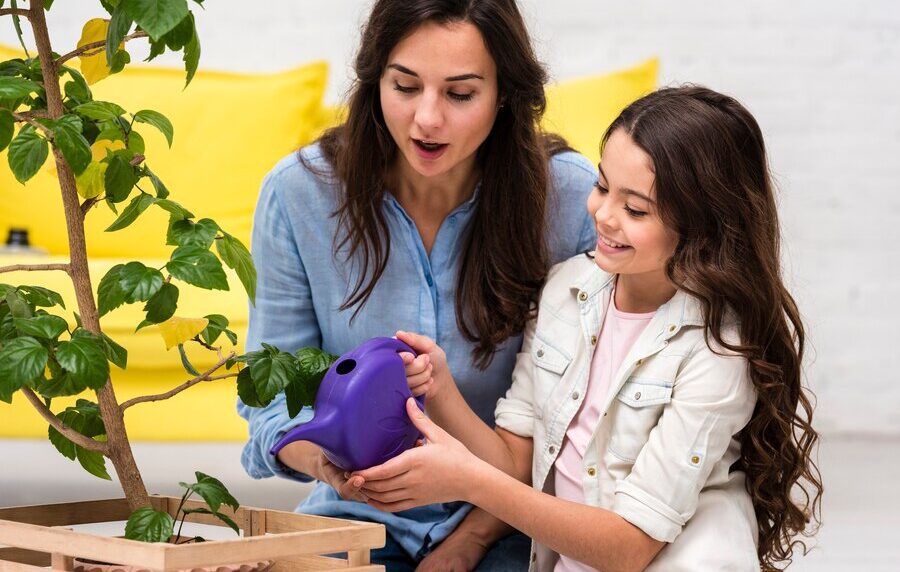
As children grow, parents and foster carers have the important job of teaching them responsibility and equipping them with essential life skills to teach children.
Moreover, this allows them to become capable and independent individuals. While teaching responsibility requires effort and patience from parents and carers, it brings long-term rewards for both child and guardian.
Moreover, foster carers teach the children different life skills. This is one way to be educated and aware of practical knowledge, which is very different from what is attained through study books. However, in this article, we discuss the topic surrounding the life skills to teach children.
Set Realistic Expectations
Match responsibilities to your child’s age and abilities. Start small with simple tasks like putting toys away, feeding pets, or helping set the table.
If you’re fostering in the UK, giving your foster child these small chores can have the added benefit of helping them feel more at home and part of your family.
However, as the kids grow older, they can take on more complex duties like doing laundry, preparing meals, or babysitting younger siblings. Hence, you must set clear guidelines and break larger jobs into smaller tasks so kids gain confidence.
Lead By Example

Children learn responsibility best by watching parents and foster carers model it. Keep your home organised, pay bills on time, fulfill work duties, and maintain positive relationships.
However, explain what you’re doing and why it’s important. Children absorb these day-to-day lessons.
Through the life lessons, the kids get an idea of the complexities of real life. Thus, awareness is highly important in learning the right lessons in life. Here, the role of the foster carers is important.
Use A Chore Chart
Visual chore charts with pictures can help young kids know what’s expected. Start with just one or two responsibilities. Reward effort with sticker charts.
As kids master tasks, add more duties. Link bigger privileges like TV or gaming console time to completing the chore chart. For teens, use mobile apps with reminders to track chores.
Pay An Allowance
Providing an allowance in exchange for completed chores teaches that effort earns rewards. Make sure to pay consistently what was agreed upon.
Moreove, tie the allowance amount to the child’s age. Young kids can save for toys; older kids learn to budget for desires. Let them make mistakes in their spending and help them correct the course.
Encourage Independence
Resist over-parenting. Let children make choices appropriate for their age, whether it’s picking clothes or activities.
Moreover, it allows them to experience natural consequences at times, like missing play time if they don’t finish homework. Have them solve simple problems. However, guidance is fine, but avoid excessively intervening.
While discussing life skills to teach children, independence is one of the core components. The children will understand the importance and value of independence through practical knowledge.
Assign A Pet
Caring for a pet builds a sense of responsibility. An older child can take primary care of feeding, grooming, and exercising as a family pet. Younger kids can help with age-appropriate tasks like filling water bowls. Pets teach compassion and offer unconditional love. Ensure you supervise interactions.
Make Home Contributions

Involve children in household decisions like planning meals, decorating their room, or planting a family garden. Have them help with dinner prep and laundry. Also, they should be shown how to check the oil and air in the car and change a tire. Home repairs build practical skills. Additionally, they guide them, but let them do age-appropriate tasks.
Promote Service
Encourage kids to assist others, whether that’s working on community service projects, helping neighbors, or volunteering for a local charity. Service develops character and responsibility. Hence reflect on how serving made them feel and led them to find joy in giving back.
Teaching children responsibility and life skills takes time and intentional effort. However, it is one of the most valuable investments that parents and foster carers can make in a child.
Practical Experience Matter
The guardian or foster care can help the child learn through personal experience. Moreover, it is one way to train the kids to be independent.
Observation shows that a lack of personal life skills to teach children can hurt the overall growth and development of an individual. Consequently, they find it difficult to adjust to difficult situations.
However, teachers and the right foster carers explain to the kids the need to procure moments from life itself. Yes, this is one of the most practical ways to grow and learn.
Moreover, with the help of training and development, they can enhance self-learning. The essential requirements to having a successful life are balancing academics and adult life.
Homes Schooling Advantages
Teachers and guides also contribute heavily to learning the key skills. Teachers impart practical life skills to teach children. This is one successful approach to guiding kids. However, incorporating life skills into the homeschool curriculum is one important and effective way to teach students practical lessons.
Academic knowledge is all about imbibing what is written in the texts. You may or may not agree with what is written in the books.
This is the strong point as well as the weak areas of the academics. However, practical learning is attained through self-revelation. Moreover, the lessons that one learns are imprinted in the mind.
At the same time, it helps identify the weak areas and unlearn the wrong knowledge. However, experienced educators and foster carers are professional enough to provide the right learning based on the facts. Ultimately, it helps in constructive and comprehensive learning.
Teaching Strategies
When you consider the essential life skills to teach children, you have to bank on the teaching strategies.
It is one of the key determiners of recognizing the self. The educator or, say, the foster carers can start with the simplest of skills.
Ultimately, this can help the students develop the right practical knowledge. Thereafter, you can proceed with the right strategies.
However, one of the approaches through which the kids can develop core life skills is through chores and activities. The foster carers need to engage them in different activities like gardening, basic level buying and selling, and the most basic chores.
Mingling with new people and managing the challenges can help them understand their priorities. It can help an individual grow their understanding most naturally.
Also, encourage children to take part and observe the world managed by adults. The challenges that kids learn through practical learning help them develop essential skills and competency.
Finally, Here Is A List Of Life Skills To Teach Children
When discussing the key life skills to teach children, we discuss some of the key examples. Each of the examples that we put together has its understanding and complexity.
However, they are highly effective in shaping the right understanding of practical skills and knowledge. However, some of the key life skills to teach children include:
- Preparation of Food.
- Safety Skills.
- Money management skills.
- Social skills.
- Personal hygiene skills,
- Basic maintenance skills.
- Social skills.
Read Also:




























